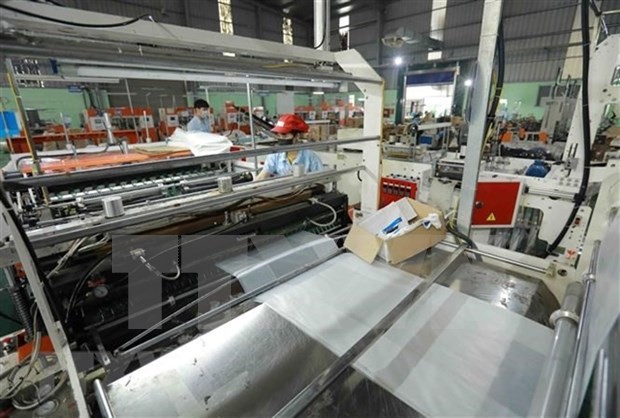
Vietnam’s economy recovery path sees prospects, challenges
Latest
 |
| Workers are working on the production line at a plastic bag factory of the HAPLAST JSC (Photo: VNA) |
In 2020 and 2021, despite impacts of the pandemic, Vietnam maintained positive growth, mainly thanks to increases in import-export and investment, especially foreign direct investment.
Following better COVID-19 control, a strong recovery was recorded in a number of industries, such as retail, personal goods, pharmaceuticals, logistics, and forestry.
The Asian Development Bank (ADB) forecast that Vietnam's economic growth would recover to 6.5 percent in 2022 and reach 6.7 percent in 2023.
The International Monetary Fund (IMF) lowered its growth forecast for the global economy this year, but believed Vietnam’s recovery will be boosted by the implementation of its socio-economic development and recovery programme. Francois Painchaud, IMF Representative in Vietnam, projected that its GDP will grow at 6 percent in 2022 and 7.2 percent in 2023.
Tran Quoc Phuong, Deputy Minister of Planning and Investment, however, said the local business climate faces new and unpredictable challenges.
Inflation is one of the biggest risks to the economy for 2022. Forecasts of domestic and international organisations, as well as economic experts, suggest that this year's inflation will approach the threshold of 4 percent set by the Government, and cannot be as low as the rates recorded in recent years.
Nguyen Bich Lam, former Director of the General Statistics Office, said that with the delay of the country’s recovery and development package in the context of rising world commodity prices, inflation is likely to be about 4 - 4.5 percent in 2022. He forecast the rate to move up to 5 - 5.5 percent in 2023.
Painchaud said that Vietnam has successfully maintained fiscal stability, external balance, and financial stability, with its macroeconomic policies helping to reduce the impact of the COVID-19 epidemic.
However, the recovery is uneven and there are some risks to the growth outlook, he said.
Phan Duc Hieu, Standing Member of the National Assembly’ Economic Committee, said that to successfully implement the recovery programme in the new context, it is necessary to implement support for people and businesses.
Increasing the economy’s absorption capacity and avoiding the waste of resources are also important, while publicity and transparency are both a solution and a requirement to improve the programme’s effectiveness and efficiency, he added.

























